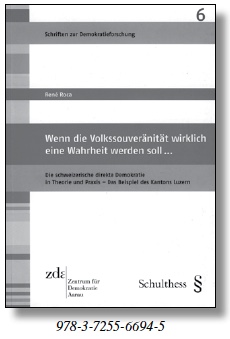Against political arbitrariness – development of democratic rights

rt. Big tasks are mastered together. Over the past several thousand years, we have succeeded in solving increasingly big and complex tasks. 10,000 years ago, people succeeded in farming based on the division of labour and furthermore irrigating the fields afterwards. Only a few thousand years later, people could inhabit first large cities.
Considering, that it has finally been possible to develop a metal structure – driven by an explosive liquid – that flies to the moon and back and considering that both the flight speed and the orbits of earth and moon had to be calculated so accurately, that the vehicle arrived at the right place at the right time and did not disappear in the universe with its crew, then one must admit that this project – still in distant memory before computer engineering – was a real masterpiece of human development and cooperation. How many different people worked hand in hand, and how exactly and precisely did they have to succeed – and despite all human weaknesses? It is possible!
Solving problems at the highest level
Even larger tasks in global cohabitation, for example in medicine, nutrition, transport, or in the area of the division of labour, were and are still solved together. For example, in recent years, the United Nations Millennium Development Goals have significantly reduced hunger in the world, and there are prospects of eliminating it. Even if there are always mistakes or errors, overall great things are accomplished.
Few people still decide on the lives of millions
Non-public agreements of small elite circles, which decide the fate of thousands, indeed millions of people, are contradictory to these achievements of human cooperation.
It does not fit into the 21st century that wars are prepared and provoked over the people’s heads, in small circles. It also does not fit into the 21st century that the economic future of millions is decided, for instance, by manipulating currencies or forming cartels. Spreading lies, defaming people, or omitting facts in order to “control the masses” in one’s own sense witnesses of arrogance and hubris.
Mentality from the time of feudalism
A political style which declares others to be “immature” or “minor”, and thinks that it can decide for them does no longer satisfy the 21st century. True democratic systems are in demand, not undemocratic party states or representative democracies or other mock democracies, in which a small elite in the name of a “majority” of whatever kind pushes its own objectives through.
“Freedom, equality, fraternity” are the long overdue maxims from the Age of Enlightenment (to avoid possible misunderstanding: “equality” does not mean “equal” and “fraternity” does not mean that only the male part of mankind is meant). Both the constitutions of all democratic states and the UN Charter contain these prerequisites. Impeding them even today solely reveals a mentality which is to be located in feudalism or in absolutism, and which does not yet respect the rights of others.
Further realisation of democracy
A further realisation of democratic rights has to take place. It is easy to refer to the Third World countries and to threaten them with sanctions (as if democratic rights had already been implemented in the so-called first world). Ongoing protest and demands from all countries of the world for “equality, freedom, and fraternity” point to the outstanding tasks.1 Especially, the elites of those states, being closely connected to these demands historically, are mostly obliged to play their part in it.
The Swiss Research Institute for Direct Democracy, FIdD, headed by René Roca (www.fidd.ch) researches, among other things, how ways to more democracy have historically become possible. Direct democracy is a form of government allowing the population to articulate and implement interests more directly. Its historical roots and the different variants during its development reveal possible ways therefor.² Also the semi-direct democracy of Switzerland and variants from abroad offer solutions to an improved implementation of the demand for freedom, equality and fraternity.
UN as an instrument of war prevention

At the beginning of the century, concerning the use of depleted uranium in Afghanistan and Iraq with all its consequences for the following generations, US war veteran Doug Rokke stated that “war is obsolete!” Yes, wars are against international law! In his publication “Illegal wars”3, Daniele Ganser uncovers the hypocrisy of a small, elite group of war profiteers who are prepared literally to walk over bodies in order to attain their egoistical goals by spreading death and doom all over the world. In contrast, for the last 60 years, the UN was available as an instrument of war prevention that hitherto regrettably has fallen victim to those elite interests. The voices of millions of people affected by this and of those not directly affected are not heard, when decisions on war and peace are taken. Wars are an extreme example of the disregard of human autonomy. Against all odds, Daniele Ganser and his Swiss Institute for Peace and Energy Research SIPER still consistently and straightforwardly advocate for peace (www.siper.ch).
Fair economic management
Free citizens are able to freely determine the rules of coexistence. If – instead of only a small group – everybody is involved, then the benefit for all according to the bonum commune, will be greater. Especially in economics, one can observe repeatedly, how confidential agreements (cartels), currency manipulations, or corruptions cause damage to entire states or amount to economy crises ruining an entire national economy. The Liberal Institute (www.libinst.ch), founded in 1979, continually brings up these grievances and calls for improvements that enable citizens to execute their rights as equals. The foundation of free economic activity consists of free citizens equipped with equal rights. The Wilhelm-Röpke-Preis für Zivilgesellschaften (Wilhelm Röpke Award for Civil Society) is given to citizens who are courageous and critically thinking in this spirit.4
Especially in times of gradually dependent research on influential private donors or state regulations, it is vital to support independent voices. Neutral and cosmopolitan Switzerland offers its location to those institutions conducting individual research.
Jointly solving problems
Repeatedly, from different regions of the world and out of differing political situations, calls for concrete action demanding democratic rights for everybody, have been heard. Understandably, these voices are gathering a lot of support although gradually running the risk of being discredited by bought or infiltrated groups operating in the daily political business (e.g. the Soros-foundation or various other political foundations) by their dishonest, political-strategic manoeuvring. Demonstrations staged specifically for the press that are meant to generate specific images, to spread opinions throughout the popula- tion via the media and to ultimately destabilise states and overturn governments, are ultimately thwart honest, democratic efforts to further democracy.
On the other hand, the most recent efforts to limit freedom of opinion in the new media also could not stop both, the intensifying exchange of ideas about the problems within and about so-called democracies and autocratic systems, as well as the peaceful struggle for continued democratic development. •
1 Kriele, Martin. Die demokratische Weltrevolution. Warum sich die Freiheit durchsetzen wird. (The democratic world-revolution. Why freedom will win through.) Munich
19913. 978-3-492 104 869
2 Roca, René (Ed.). Katholizismus und modern Schweiz. Beiträge zur Erforschung der Demokratie 1. (Catholicism and modern Switzerland. Contributions to the exploration
of democracy 1), Basel 2016. 978-3-7965- 3498-0
id. (Ed.). Liberalismus und moderne Schweiz. Beiträge zur Erforschung der Demokratie 2. (Liberalism and modern Switzerland. Contributions to the exploration of
democracy 2), Basel 2017. 978-3-7965-3639-7 (order at <link http: www.fidd.ch>www.fidd.ch)
id. Wenn die Volkssouveränität wirklich eine Wahrheit werden soll… . Die schweizerische direkte Demokratie in Theorie und Praxis – Das Beispiel des Kantons Luzern.
Schriften zur Demokratieforschung 6. (If indeed the sovereignty of the people is to become reality. … . The Swiss direct democracy in theory and practice – The
example of the canton of Lucerne. Works on the exploration of democracy 6), Edited by the Centre for Democracy Aarau, Zurich 2012.
3 Ganser, Daniele. Illegale Kriege. Wie die Nato-Länder die Uno sabotieren. Eine Chronik von Kuba bis Syrien. (Illegal Wars. How NATO countries sabotage the UN. A
cronicle from Cuba to Syria). Zurich 2016.
id. Europa im Erdölrausch. Die Folgen einer gefährlichen Abhängigkeit. (Europe grabbed by oil fever. Consequences of a dangerous dependency). Zurich 2016.
978-3-280-05474-1
id. Nato-Geheimarmeen in Europa. Inszenierter Terror und verdeckte Kriegsführung. (NATO’s secret armies in Europe. Staged terror and secret warfare). Zurich 2016.
978-3-280-06106-0
4 Liberal Institute. Wilhelm-Röpke-Award for Civil Society: <link http: www.libinst.ch>www.libinst.ch